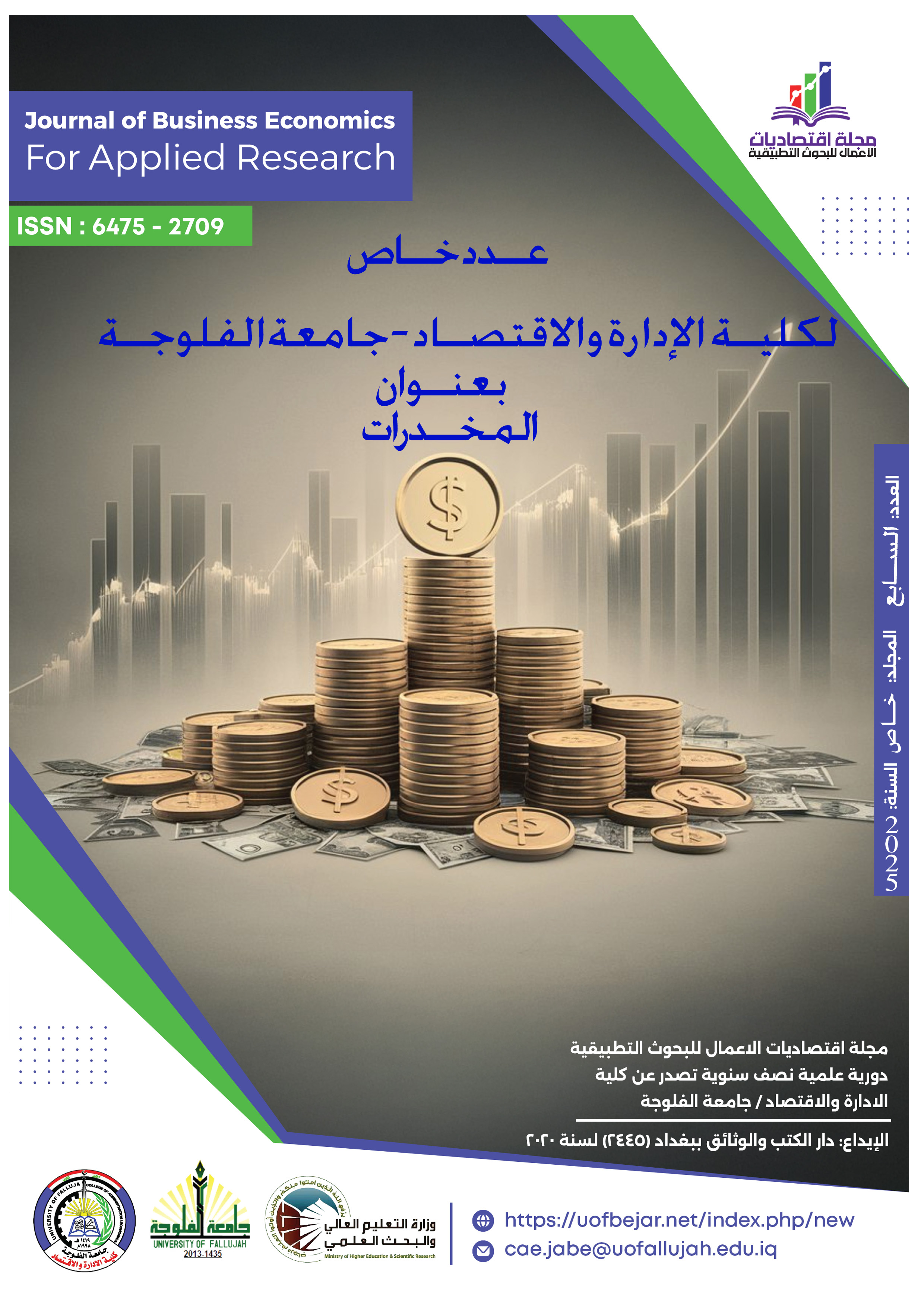The role of Reverse marketing in reducing drug addiction a descriptive analytical study of the opinions of a sample of members of the Khalidiya Police Department centers
Abstract
The research aims to test the nature of the impact of Reverse marketing in its dimensions (reverse product, reverse pricing, reverse promotion, reverse distribution) on consumer addiction and how Reverse marketing can affect individuals' motives towards drug consumption, and whether this type of marketing can effectively change their behavior by testing the research hypotheses. The research adopted the descriptive analytical approach and tested a sample taken from the research community represented by members of the police stations affiliated with the Khalidiya Police Department with the rank of officer, whose number reached (43) officers. The sample was taken using the comprehensive enumeration method, and the questionnaire form was adopted as the main tool in collecting data and information from the research sample. The Spss V.26 and Smart PLS4 programs were used to analyze the data and test the hypotheses. The research reached a set of conclusions, the most important of which are: There is a significant impact of the independent variable (Reverse marketing) in its dimensions on consumer spending, which indicates that Reverse marketing can influence demand and transform it into the consumption of more beneficial and more sustainable products. Based on the conclusions, the research presented a set of recommendations, the most important of which are: The need to work on educating consumers about the dangers of excessive spending on harmful products by using marketing advertising content to highlight the financial and psychological consequences that may affect an individual if he becomes addicted to these products.



